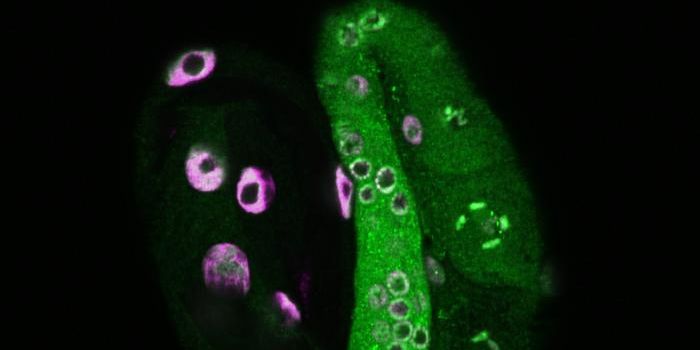Fish Adapted to Toxins Pass Epigenetic Changes Onto Offspring
Parents pass down their genes to their offspring, and it seems that epigenetic features, which can affect gene activity without making changes to the DNA sequence, can also be passed down. New research has assessed whether epigenetics are heritable in animals called Poecilia mexicana fish, or Atlantic molly, which live in waters that have naturally high hydrogen sulfide levels. The researchers found that hydrogen-sulfide-adapted groups of these fish have more epigenetic marks in common with their ancestors than they do with Atlantic molly that have always lived in freshwater. The findings have been reported in PNAS.
"After two generations in laboratory conditions, the fish generally retained their same epigenetic marks, which was really unexpected," said corresponding study author Joanna Kelley, WSU associate professor of evolutionary genomics. "In an evolutionary context, the study shows that these epigenetic marks are fairly stable."
Sewage treatment, gas exploration, and some manufacturing processes can easily generate hydrogen sulfide, which can also be found in nature. This chemical is toxic to many animals even at low concentrations and can be fatal at high levels. But some Atlantic Molly have adapted to it.
In this work, the scientists raised two groups of fish, either sulfide-adapted or not, in freshwater. The fish produced two generations of offspring that were analyzed. The researchers looked at an epigenetic marker called DNA methylation, and found that the second generation of offspring from the sulfide-adapted fish had 80 percent of their methylated regions in common with their grandparent fish, even though they'd been raised in freshwater. They had 20 percent of the methylated regions in common with fish that had lived entirely in freshwater.
"It's really one of the first examples where we've taken an organism out of its normal environment and put it into a different environment and showed that the epigenetics keep being inherited going forward," said Skinner.
This research confirms previous work that has indicated that epigenetic changes can be passed down to future generations. Environmental toxins appear to be one cause of those epigenetic changes in wild and laboratory animals. The scientists warned that humans are not immune to the effect of harmful chemicals in the environment.
"This is not a one-off, unique species event. This has an impact on everything, including humans," Skinner added. "Although this is an animal model, it's a demonstration of how an environmental toxicant can actually shift the epigenetics and it becomes programmed for subsequent generations."
Sources: AAAS/Eurekalert! via Washington State University, Proceedings of the National Academy of Sciences (PNAS)










